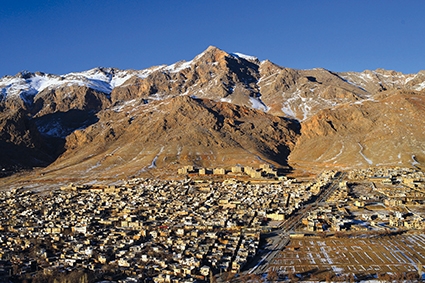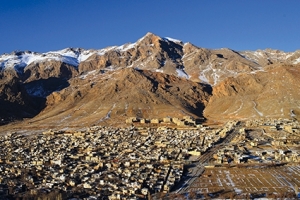Fereydan Georgians in Iran Demand Citizenship
Aprotest rally was held yesterday in front of Tbilisi’s Justice House with protestors demanding a change in the composition of the commission on granting citizenship, because the current commission has denied Georgian citizenship to Fereydan Georgians. Feredyan Georgians are a population of more than 100,000 ethnic Georgians living in the Fereydan region of the Isfahan Province in central-western Iran. Most of the population was forcibly resettled from Georgia to Iran in the 16th-19th centuries when present-day Georgia was under the rule of Persia. There are estimates that more than 3 million Iranians today have some Georgian ancestry.
In Fereydunshahr County, approximately 150 km west of Isfahan, there are an estimated 4,000 families, most of whom are Georgian. In their homes, they speak a dialect of Georgian that many linguists believe is similar to the Georgian spoken when the people were displaced 300-500 years ago. They have also retained the use of the Georgian alphabet. Adapting to local life, Fereydan Georgians learned Farsi and largely practice Twelver Shia Islam. The Georgian name for Fereydunshahr is Mart’kopi (მარტყოფი). Throughout Fereydan county, a chain of about 10 villages, all with Georgian names such as Vashlovani, Chughureti, and Ruvis Piri, is called “Little Georgia” by Iranians.
At yesterday’s protest in Tbilisi, there were claims of ethnic oppression towards Fereydan Georgians. Demonstrators called on the government to respond swiftly, carrying signs that read “I am Georgian too – do not let go of your homeland!” and “Change the commission’s members!”
Davit Tevzadze, founder of the political union For Peace, told Rustavi 2 news “I think the approach should be changed with these people and should be changed at the state level. It is unclear how Georgian people cannot become citizens of Georgia. It is uncertain and vague in the articles of the resolution.”
Chairman of the State Services Development Agency, Soso Giorgadze, said that Georgia does want to grant citizenship to the Fereydan population, and that the commission considers all applications for citizenship equally. “By order of the Minister of Justice of Georgia, Georgians who emigrated from Georgia, including Fereydans, are on our list as a priority for granting citizenship,” said Giorgadze, Rustavi 2 reports.
In the 1970s, a group of Fereydan Georgians successfully lobbied the Iranian and Georgian governments to be repatriated to Kakheti, the eastern Georgian region where their ancestors are believed to have come from. As explained by Nino-Ana Samkharadze of Chai-Khana, “the transition was not...smooth. The Fereydani women, who had fought hard to keep the link with Georgia, suddenly found themselves alienated in their supposed homeland, where locals saw them as ‘Iranian Tatars’ who spoke incomprehensible Georgian and followed archaic customs. Soon, most of them asked to be returned to Fereydan.”
In June 2004, the newly elected Georgian President, Mikheil Saakashvili, visited Fereydunshahr. He was the first Georgian politician to visit the Iranian Georgian community there, and thousands of Fereydan Georgians welcomed his delegation. Saakashvili spoke about the significant contributions of Georgian-Iranians and laid flowers on the graves of Georgian-Iranians killed in the Iran–Iraq War.
In 2017, President of Georgia, Giorgi Margvelashvili, hosted a group of Fereydan Georgians at the Presidential Palace. The Presidential Reserve Fund supports cultural programs in Fereydan that help the population acquire and preserve the Georgian language, history, and folk songs. Margvelashvili spoke about the problems of Fereydan Georgians, discussed project objectives, and wished its participants success. The visitors, 13 young men and 1 young woman, presented the President with a wall panel depicting St. George, which hangs in the Presidential Palace.
By Samantha Guthrie












